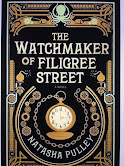Writing Dialogue: Top 5 Ways to Make it better
By Theresa Gauthier
Dialogue is an integral part of any good novel or short story. It’s more important in a script. Dialogue can make or break your prose.
It’s possible to write beautiful, descriptive paragraphs but fail miserably when trying to capture how people speak to each other. Here are some ways to improve how you handle dialogue.
Top 5 Ways to Improve Your Dialogue
1. Listen.
When you here people speaking take note of what they say and how they say it. How does it differ to the way you speak? Does it differ from age to age? Does it differ in any other ways? If you write a scene between married people, how would it differ if the couple is on their honeymoon as opposed to celebrating their 50th Wedding Anniversary? What about best friends? Estranged siblings? Sisters? Twins? There are nuances to the way people interact with each other and the best way to capture that in writing is to listen to the real thing. Listen and make note of these things when you hear them.
2. Practice
Don’t be afraid to rewrite your dialogue from a different perspective. Maybe instead of a shouting match between your two characters, they’re angry but whispering, or somehow trying to keep their argument from escalating. Why? Maybe they’re out in public an don’t like the idea of getting into a knock-down-drag-out in so public a place. Maybe they’re in a social situation where it would be detrimental to be airing such personal arguments—for instance at someone’s boss’s home, or in front of a television camera. See what you scene would be like if it wasn’t exactly what you imagined.
3. Dialect
It’s a long-time debate. Do you write out the dialect of your characters or describe it in the narrative? Both have been done well, but you would have to decide what you prefer—and, of course, what works for one story may not work for another. Sure a character might say, “Keptin” instead of “Captain” but is it necessary to write it that way or would you be able to describe the character’s accent instead and not alter the spelling of the words. Only you can decide what works for you.
4. Creating Your Own Jargon or Slang (Or Using What’s Out There)
Is your story a far future one full of words that don’t exist on this earth, but that you feel add to the atmosphere? Is your story set in a medical facility and full of medical procedures and medical words? Is it set in a bookstore where the booksellers talk about LSLs or Manifesting an order or POS or POP or any number of other abbreviations? Sci-Fi can tend to have its own language—and not just alien language. TV Shows like Star Trek and Firefly make good use of far future words, so why not do the same with your book? You can add whatever words you need to if they help. You can make up words for your far future slang fest, but don’t overdo. Too much and you run the risk of making your story indecipherable.
5. Read aloud
When your dialogue starts to fill up the page, take a moment and read it out loud. Only when you listen to the words, to the cadence of the lines you’ve written will you be able to decide if they work for you. Do all your characters speak in similar patterns? Why? Do some have a different way of speaking? Why? Hearing is different from seeing—and all the words may seem fine spelled out on the page, but how do they sound? Read to a friend, or if you know an actor, professional or aspiring, make it a little more formal. Once your words have been lifted from the page, you’ll know if they should stay on the page or be deleted to make room for another draft.
This isn’t an exhaustive list. Play with your dialogue. You’ll be glad you did.







Comments
Post a Comment